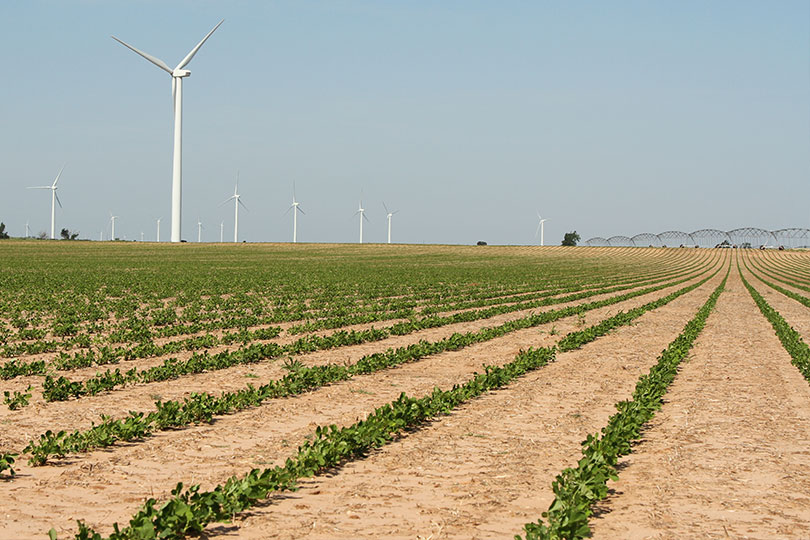By Emmy Powell
Communications Specialist
Drought continues to show its impact on Texas crops, and peanuts are no exception.
The intense, dry summer stalled the growth of the state’s peanut crop.
“The drought is bad everywhere. There’s places that seem to be worse than others. One of the worst places is West Texas,” Shelly Nutt, executive director of the Texas Peanut Producers Board, said. “(Farmers) started the year with very, very little subsoil moisture, and the crops are just not surviving well at all. Irrigation is not able to keep up.”
Although peanuts can grow in the heat, this year’s record-breaking temperatures have taken their toll. And the lack of rain is forcing peanut farmers to use more irrigation.
But even that couldn’t save some of the peanut crop.
“I think that we’re going to continue to see farmers just say, ‘We can’t afford to just keep pouring water on a crop. We’re going to have to walk away from it.’ The people that do stick it out, they’re going to see those yields impacted, and I’m really concerned that we could see 45 to 50% yield loss across the board in Texas,” Nutt said.
Another farmer expects to see about a 30% reduction in peanut yields.
Peanut farmers have been impacted differently throughout the season. This year’s peanut crop has been holding on in few locations, but the quality of crops depends on the location of the farm.
“It’s depending on where the farm’s located, if they had any rain at all, how their water situation looks for irrigation,” Nutt said in an interview with the Texas Farm Bureau Radio Network. “Everything is playing in this year and factoring in on whether they’re making a crop or not making one at all, and basically just walking away from it.”
On a normal year, Nutt said peanuts are grown on about 185,000 acres and produce an average of 300,000 tons.
“I’m really concerned that we could see that drop to 150,000 tons. That’s going to be really tough on not just our farmers, but we’ve built up customers that count on our high-quality Texas peanuts,” Nutt said.
Nutt encourages farmers to remain optimistic.
“My hope is that we’ve nurtured those relationships with the manufacturers to where they understand that this is an anomaly,” Nutt said. “We don’t have years like this regularly. We’re going to come back and make a great crop again, just let us get through 2022 and then we’re going to start over in 2023 with optimism.”

